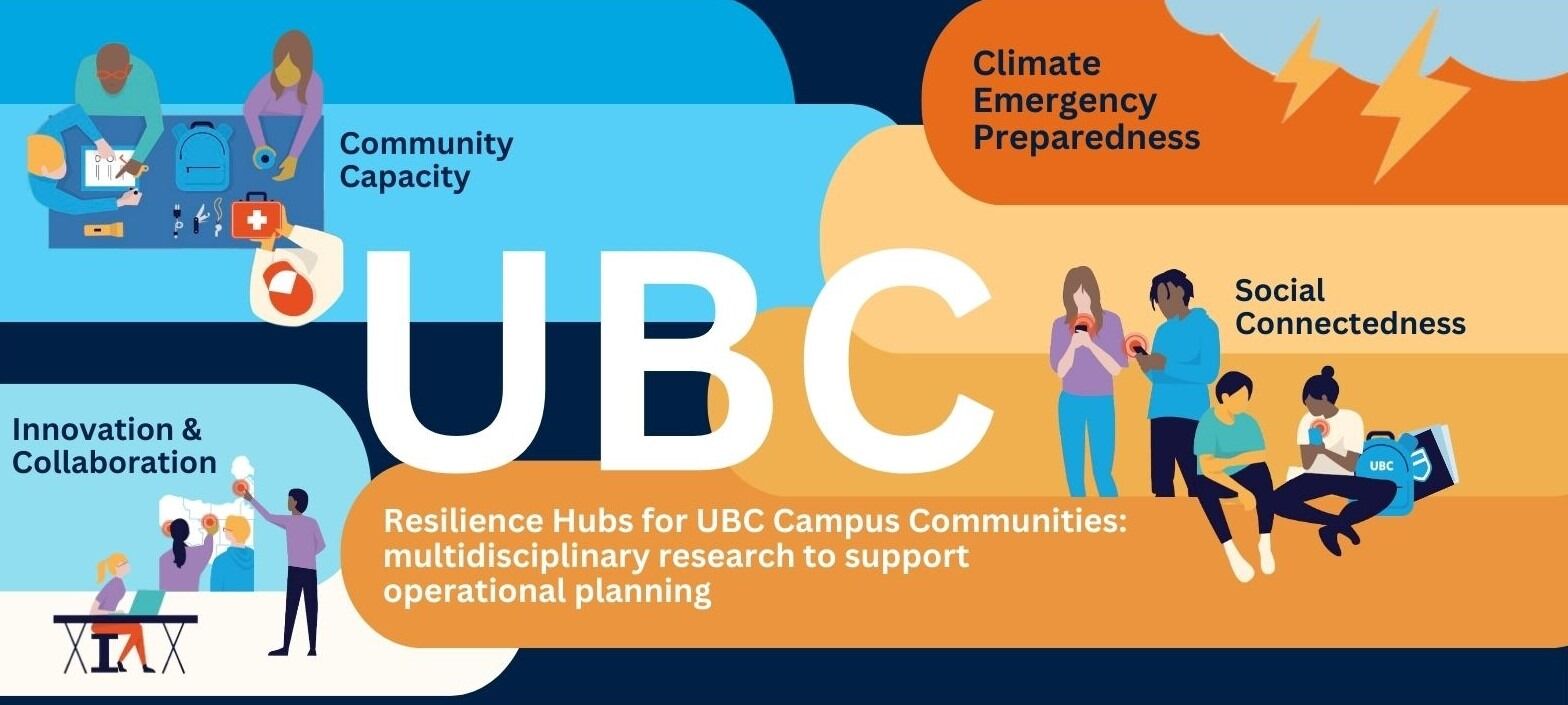A partnership between DRRN faculty members and UBC Safety & Risk Services won one of three grants under the UBC Campus as a Living Lab (CLL) Grand Challenge for their project: "Resilience Hubs for UBC Campus Communities."
This visionary project at UBC Vancouver focuses on enhancing campus resilience in response to climate hazards, aligning with the Campus Vision 2050 Plan. It will develop a resilience hub framework to strengthen community connections and emergency support, and create a disaster risk reduction roadmap to improve UBC’s operational response to climate emergencies. By integrating multidisciplinary research and operational expertise, the team will support UBC’s long-term resilience planning, addressing key priorities in climate emergency preparedness and community wellbeing.
Award amount: $250,000
Priority area: Climate Action and Resilience
Faculty lead: Stephanie Chang, Professor, School of Community and Regional Planning (SCARP) and Institute for Resources, Environment and Sustainability (IRES)
Staff lead: Hailey Maxwell, Manager, Emergency Management & Continuity Planning, Safety & Risk Services
Co-lead: Steven Weijs, Associate Professor, Faculty of Applied Science, Department of Civil Engineering

From the application:
This project envisions two deliverables, both informed by long-term projections of climate hazard intensification and UBC population growth. The first deliverable is a Framework for Community Resilience Hubs. A Resilience Hub is defined as a community amenity designed to build social connection, facilitate a sharing of knowledge and culture, and enhance wellbeing in non-emergency times, and in an emergency, provide shelter, critical service centralization, food and water. The value of connecting these purposes in one amenity is the known benefit of social and community connection for disaster resilience building.
The second deliverable is a Disaster Risk Reduction Roadmap for UBC operations. Strong emergency management and resilience programming is required in order to support and sustain the Resilience Hubs framework. The research projects conducted for the first deliverable will inform the roadmap for enhanced long-term hazard and resilience planning. An additional research project will be conducted to envision governance models required to respond to future climate hazards. The development of the roadmap will be a collaborative and consultative review of current operational practices for climate emergency response followed by a series of recommendations to inform long-term strategic direction and policy.
"Your innovative project proposal demonstrates vision and ingenuity in leveraging UBC’s academic and operational capacity in responding to the climate emergency and aligns with UBC Vancouver’s commitment to fostering a sustainable and vibrant campus community." - From the review committee
To read about the other funded CLL projects, visit:
